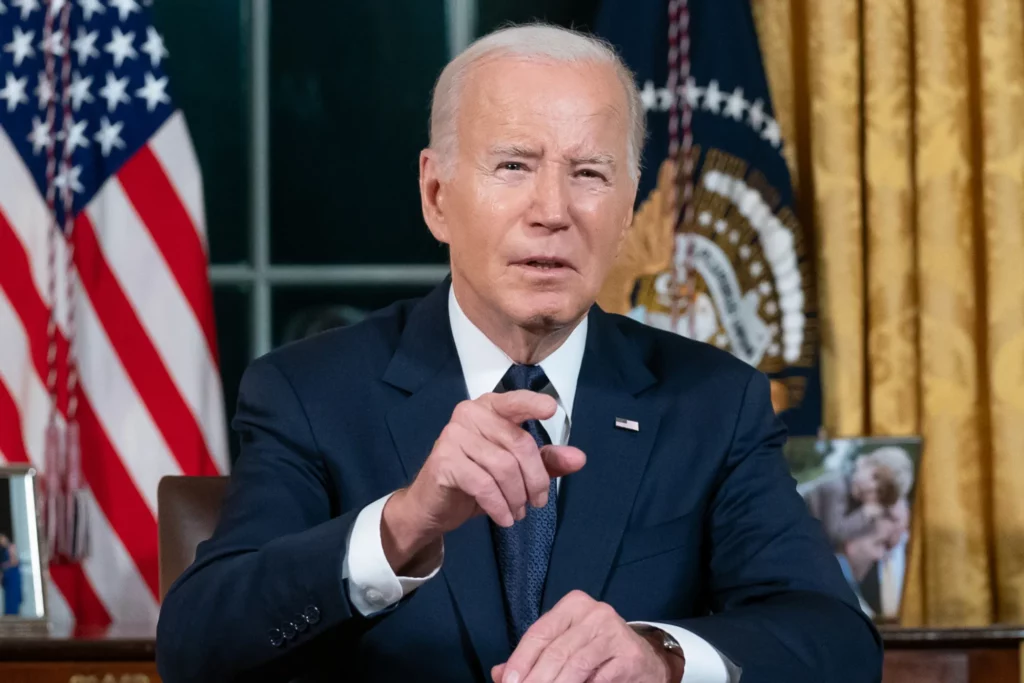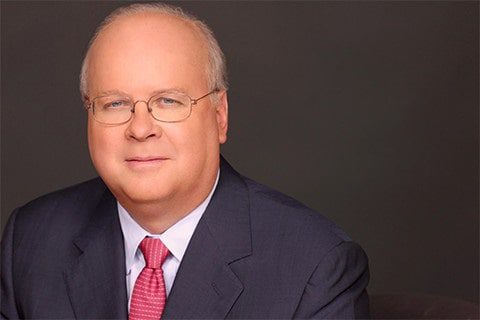
Opinion
By Karl Rove
President Biden insists he’s staying in the White House race. If that doesn’t change, it’ll be because of his selfishness and congressional Democrats’ pusillanimity. Both have kept Mr. Biden’s deeply flawed candidacy afloat.
Speaker Emerita Nancy Pelosi has gently raised the issue, but until Senate Majority Leader Chuck Schumer and House Minority Leader Hakeem Jeffries inform Mr. Biden that for the sake of party and country it’s time to pack up, he’s not going. So far, Messrs. Schumer and Jeffries haven’t found the courage to tell their increasingly infirm and isolated standard-bearer the truth. If he loses in November—which is likely—they’ll bear much of the blame.
Some Democratic senators and representatives have expressed deep concerns about Mr. Biden’s ability to win after his catastrophic debate performance. Many more have remained publicly silent, despite knowing the debate confirmed voters’ fears that Mr. Biden lacks the mental acuity and stamina to be president. The president told ABC News’s George Stephanopouloslast week that his debate disaster provided “no indication of any serious condition.” Voters know better.
Mr. Biden insisted that “the Lord Almighty’s not comin’ down” to force his withdrawal. But he’s mistaken to say he’s the person most qualified to beat Mr. Trump. He may be the only Democrat likely to lose to him.
It’s delusional for Mr. Biden to believe he’s winning the race. But since the president is getting political advice from his son Hunter, it’s clear he doesn’t have a rational decision-making process. Bottom line: No presidential candidate whose party is as severely divided, dispirited and unenthusiastic as Democrats are today has ever won.
Rather than accept the national consensus that the president isn’t up to the job, Team Biden is trying to push past this moment. But teleprompter speeches before small crowds, call-ins to friendly radio and television hosts, and a handful of awkward public appearances in the next few weeks won’t turn this around—especially since Mr. Biden continues stumbling even in the most controlled settings.
One group is very enthusiastic about Mr. Biden’s insistence on staying in the race: Team Trump. That campaign team understands that Mr. Biden’s debate performance now makes it difficult for Mr. Trump to blow the race. As long as the former president sounds sensible, avoids recording devices on golf courses and stays away from Truth Social late at night, he has the upper hand.
What if Mr. Biden decides to withdraw? That would upend everything.
Contrary to what Mr. Biden’s supporters say, the convention to replace him need not degenerate into a brawl. Hopefuls might slip opposition research to journalists to discredit or weaken their competitors, but that’s as far as the mudslinging is likely to go. Any Democrat who ran would understand that public nastiness is a sure path to defeat and perhaps even to future irrelevance. Outwardly, each would accentuate the positive by arguing he or she is the best Democrat to beat Mr. Trump.
All but 43 of the 3,939 convention delegates were slated by the Biden campaign. The Chicago gathering won’t be a bunch of Bernie Bros or “Squad” members; instead, it’ll be mostly normal Democrats who want to win the election. If no candidate gets a first-ballot majority when the regular delegates vote, then 739 Democratic so-called superdelegates can vote. Talk about a crew of practical politicos focused on victory. And we’ll be glued to our screens the entire convention.
Vice President Kamala Harris would be the favorite but hardly the sure thing. Her 2020 bid revealed that she’s a weak candidate. Her unfavorable numbers are worse than Mr. Biden’s and Mr. Trump’s. And she’s in charge of border policy: How has that worked out? If there’s a new nominee, that person could keep Ms. Harris as vice president to avoid ditching the first black and Asian-American female veep.
Artilce first appeared in the Wall Street Journal

Karl Rove served as Senior Advisor to President George W. Bush from 2000–2007 and Deputy Chief of Staff from 2004–2007. At the White House he oversaw the Offices of Strategic Initiatives, Political Affairs, Public Liaison, and Intergovernmental Affairs and was Deputy Chief of Staff for Policy, coordinating the White House policy-making process.
Mr. Rove has been described by respected author and columnist Michael Barone in U.S. News & World Report as “…unique…no Presidential appointee has ever had such a strong influence on politics and policy, and none is likely to do so again anytime soon.” Washington Post columnist David Broder has called Mr. Rove a master political strategist whose “game has always been long term…and he plays it with an intensity and attention to detail that few can match.” Fred Barnes, executive editor of The Weekly Standard, has called Mr. Rove “the greatest political mind of his generation and probably of any generation. He knows history, understands the moods of the public, and is a visionary on matters of public policy.”
Before Mr. Rove became known as “The Architect” of President Bush’s 2000 and 2004 campaigns, he was president of Karl Rove + Company, an Austin-based public affairs firm that worked for Republican candidates, non-partisan causes, and non-profit groups. His clients included over 75 Republican U.S. Senate, Congressional, and gubernatorial candidates in 24 states, as well as the Moderate Party of Sweden.

